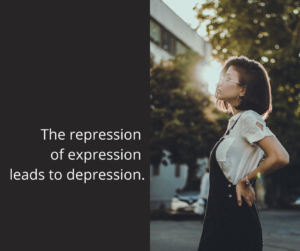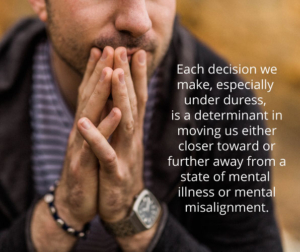How to Forgive Someone: Biblical Guidance on Forgiveness
Have you ever been asked to do something that seemed impossible? How did you respond to the challenge? Sometimes in life, we face situations that take us to our limits and beyond. The sort of people we are – our character – shows in those moments. Though we may fail in the attempt, being willing to give something a go has great value. Newport Beach Christian Counseling offers faith-based support to help individuals navigate life’s challenges with courage, resilience, and a renewed sense of purpose.
 If we are familiar with what the Bible says about living a life that is rooted in love for God and neighbor, then we know how challenging living such a life can be. We don’t always meet our self-expectations, and that’s to say nothing of the high standard to which God holds his people.
If we are familiar with what the Bible says about living a life that is rooted in love for God and neighbor, then we know how challenging living such a life can be. We don’t always meet our self-expectations, and that’s to say nothing of the high standard to which God holds his people.
Nonetheless, we try to live faithfully, to be just and loving people through the power of the Holy Spirit. We may not get it right, but we try; and when we fail, we dust ourselves off ask the Lord for His grace and mercy and try again. It matters that we keep going despite the challenges and setbacks. The life of faith as a disciple of Jesus means staying in alignment with the Word of God.
One area that most of us find challenging is forgiving others. When people wrong us, we may find ourselves inclined toward wanting to see them pay for what they did. In other instances, we may not wish them harm, and many times we certainly want nothing more to do with them.
The sins we and others commit are many, varied, and complex in the kinds of effects and traumas they produce. In the Bible there are three categories of sins mentioned: sin, transgressions, and iniquities. Forgiving others is thus not always a simple matter, and it may feel like we are betraying ourselves and our experiences to forgive someone who has wronged us.
What is written below is in no way intended to guilt us into forgiving someone or to do something we aren’t ready to do. Forgiveness is ultimately a choice we must make to let go of our anger and desire for revenge and forgive as our Father forgave us.
Forgiveness is for the person doing the forgiving, not the person receiving the forgiveness. That’s not a choice anyone can make for another person, but we must reflect on the biblical teaching about God’s will for us to live free of resentment and vengeance.
After all, holding onto unforgiveness, according to some research studies, negatively affects our physical and mental health by making us more vulnerable to stress, heart disease, high blood pressure, anxiety, and depression.
We too are forgiven

One of the realities with which we are regularly confronted in the Bible is that we all need God’s forgiveness. The word “sin” doesn’t roll off our tongues easily, but essentially what that word conveys is the notion that we are morally bankrupt. We miss the mark in a variety of ways, whether it’s by not doing what we’re meant to do, or by doing the things we aren’t supposed to. We sin because we seek after fleshly gratifications.
Our attitudes towards other people may be less than generous; we might treat others with more respect because they are like us in one way or the other. We show favoritism or partiality; at other times we are unwilling to consider the feelings of others. In our thoughts, feelings, and actions, none of us is perfect and lives the way God wants us to. For this and more, God has forgiven us.
It wasn’t so long ago that you were mired in that old stagnant life of sin. You let the world, which doesn’t know the first thing about living, tell you how to live. You filled your lungs with polluted unbelief, and then exhaled disobedience. We all did it, all of us doing what we felt like doing, when we felt like doing it, all of us in the same boat. It’s a wonder God didn’t lose his temper and do away with the whole lot of us. Instead, immense in mercy and with an incredible love, he embraced us. He took our sin-dead lives and made us alive in Christ. He did all this on his own, with no help from us! Then he picked us up and set us down in highest heaven in company with Jesus, our Messiah. – Ephesians 2:1-10
This is a powerful message that shows how God has bestowed on us his undeserved favor. The first few verses of that passage read, “Though we were disobedient, God forgave. us and gave us new life.
This forgiveness isn’t a thing of the past. We continue to sin, and God continues to forgive us – “If we claim we have no sin, we are only fooling ourselves and not living in the truth. But if we confess our sins to him, he is faithful and just to forgive us our sins and to cleanse us from all wickedness.” –1 John 1:8-9
God meets us in our weakness and forgives us. Even as we consider how others may have wronged us, we must also consider how we have wronged God and others, and yet we are forgiven.
We forgive others as we are forgiven

Forgiving others is likely one of the hardest things about the Christian life. We mustn’t make the mistake of thinking that forgiveness means that you aren’t taking a person’s actions seriously. On the contrary, because we understand that God’s forgiveness came to us through Jesus and the sacrifice he made on our behalf, we know that forgiveness is serious business.
It’s so serious in fact that we are reminded that if we understand just what it is God has done in forgiving us, we will extend that forgiveness to others. Ephesians 4:32 reminds us to “Be kind and compassionate to one another, forgiving each other just as in Christ God forgave you.”
Matthew 6 Jesus teaches his followers to pray, “Forgive us our debts as we also have forgiven our debtors” and then he adds this difficult word – “For if you forgive men when they sin against you, your heavenly Father will also forgive you. But if you do not forgive men their sins, your Father will not forgive your sins”. The gift we have received from God, we are to pass along to others; if we have understood God’s gift to us, that is.
Additionally, forgiving another person is more about us than it is about them. Have you ever noticed how stressful it is to be around someone you have something against? You either try to avoid them, or you grit your teeth when they’re speaking all the while thinking less-than-healthy thoughts.
Forgiveness allows us to let go of our toxic emotions such as hatred towards the other person. We reclaim our thoughts and don’t allow them to live “rent-free” in our hearts and minds because of the negative emotions we bear toward them. When we forgive them, we can move on with our lives, free of resentment.
We forgive often
The things that people do that require forgiveness may vary, but the act of forgiveness, the choice of letting go of the desire to pay back remains a tough one. It often doesn’t happen overnight; we must sometimes choose to forgive daily. If you live with the person, or if the things the person does occur often, that makes the act of forgiveness a daily choice.
 Peter, one of Jesus’ closest disciples once asked Jesus the question “Lord, how many times shall I forgive my brother when he sins against me? Up to seven times?” Jesus responded, “I tell you, not seven times, but seventy times seven.” (Matthew 18:21-22). Peter’s question is all too relatable. It would be nice to have an upper limit when it comes to forgiveness, beyond which we can hold onto our resentment with divine approval. Jesus scuppers that hope. We forgive as often as we must.
Peter, one of Jesus’ closest disciples once asked Jesus the question “Lord, how many times shall I forgive my brother when he sins against me? Up to seven times?” Jesus responded, “I tell you, not seven times, but seventy times seven.” (Matthew 18:21-22). Peter’s question is all too relatable. It would be nice to have an upper limit when it comes to forgiveness, beyond which we can hold onto our resentment with divine approval. Jesus scuppers that hope. We forgive as often as we must.
Of course, we must understand that forgiving someone doesn’t mean that no natural consequences will flow from their actions. If a crime has been committed, forgiveness doesn’t mean the law can’t take its natural course. If a person repeatedly breaks their word to you, forgiving them doesn’t mean you are required to give them anything more than that forgiveness. Newport Beach Christian Counseling provides guidance on navigating forgiveness with wisdom, setting healthy boundaries, and finding healing through faith.
We can do all things
Forgiveness is hard. But in this, as in other areas of life, God has not left us to our own devices and to figure it out on our own. We “can do all things through him who gives [us] strength” as Paul wrote in Philippians 4:13. God gives us strength to do the impossible – to forgive those who sin against us and to trust in God’s good judgment, leaving vengeance to God alone (Romans 12).
For the sake of our mental, physical, and spiritual health, forgiving others is a healthy practice that is tough in the doing, but worth it in the end. Ephesians 4:26-27 states, “Be angry, and yet do not sin; do not let the sun go down on your anger, and do not give the devil an opportunity.”
Prayer for forgiveness
This prayer was written by Sue Fernandez in her book, Deliverance for Christians: Claiming Your Freedom In Christ.
“Father, in Jesus’ name, I ask that You take back the ground that was given to the enemy when (Name of Person)(List Specific Incidents). I ask that You break every stronghold from my soul. And as an act of my will, I choose to forgive (Name of Person) and I ask that You give me Your Grace to do so, from the bottom of my heart. I renounce unforgiveness. I renounce bitterness, and I ask that You remove every root of bitterness.
“If anyone has been defiled by my bitterness, I ask that You show me who that is and what I need to do. I ask that you bind the enemy from (Name of Person); take off all the veils of the enemy: and open his eyes, ears, heart, and soul to the truth of God. I also ask that You bring someone to him who can lead him to salvation. I release (Name of Person) now to You, Lord, for You to work in his heart, soul, and life, as You will.”
“Watching the Sunset”, Courtesy of Cathy Mu, Unsplash.com, CC0 License; “Purple White Flowers”, Courtesy of Vlad Zaytsev, Unsplash.com, CC0 License; “Hug”, Courtesy of Igor Erico, Unsplash.com, CC0 License; “Pink Flowers”, Courtesy of Hannah Olinger, Unsplash.com, CC0 License

 This is where I like to implement distractions. I may know in my mind that there is nothing to be sad about. I may have a wonderful life, a great spouse, successful children who are walking with the Lord, but I still don’t feel good, and I lack the desire to participate in things I once found interesting. The enemy tries to discourage a person and pressure them to feel guilty about these feelings. Naturally, we tend to look inward for the reason.
This is where I like to implement distractions. I may know in my mind that there is nothing to be sad about. I may have a wonderful life, a great spouse, successful children who are walking with the Lord, but I still don’t feel good, and I lack the desire to participate in things I once found interesting. The enemy tries to discourage a person and pressure them to feel guilty about these feelings. Naturally, we tend to look inward for the reason. Another reason we may continue to be affected by feelings of sadness is that we may have conditioned ourselves to be in this state. People find it comfortable to sit in darkness, wallowing in self-defeating thoughts. Though it’s not necessarily a desire to feel depressed, we may experience a physiological response (physical response throughout the body) to a depressed mood.
Another reason we may continue to be affected by feelings of sadness is that we may have conditioned ourselves to be in this state. People find it comfortable to sit in darkness, wallowing in self-defeating thoughts. Though it’s not necessarily a desire to feel depressed, we may experience a physiological response (physical response throughout the body) to a depressed mood. Do not mistake this for condemnation, however. Christ sent his Holy Spirit to us to encourage us and to convict us of sin. Conviction is meant to prompt us to repent, not to condemn us. The Bible says that His goodness leads us to repentance (Romans 2:4). Out of love, we turn back to Christ knowing that his plans for our lives are far better than our own.
Do not mistake this for condemnation, however. Christ sent his Holy Spirit to us to encourage us and to convict us of sin. Conviction is meant to prompt us to repent, not to condemn us. The Bible says that His goodness leads us to repentance (Romans 2:4). Out of love, we turn back to Christ knowing that his plans for our lives are far better than our own. It may keep us clinging to Jesus, running back to Him for continual support because we realize that during periods of intense depression, He is the only way we can make it through the day. Ultimately, Jesus wants us to be close to Him. He wants us to spend time in His word and rely on Him.
It may keep us clinging to Jesus, running back to Him for continual support because we realize that during periods of intense depression, He is the only way we can make it through the day. Ultimately, Jesus wants us to be close to Him. He wants us to spend time in His word and rely on Him. There are several different types of communication, but they all boil down to verbal, nonverbal (actions), written, and visual. These skills also referred to as people skills, can take you far.
There are several different types of communication, but they all boil down to verbal, nonverbal (actions), written, and visual. These skills also referred to as people skills, can take you far. Some people learn better when several of these types of communication are combined. For example, you might be more comfortable learning new information using written and visual materials. And it might be easier for you to express your thoughts of very detailed, personal matters through written material (a journal) rather than talking (verbal communication) with someone.
Some people learn better when several of these types of communication are combined. For example, you might be more comfortable learning new information using written and visual materials. And it might be easier for you to express your thoughts of very detailed, personal matters through written material (a journal) rather than talking (verbal communication) with someone. The written word surrounds us daily with billboards, newspapers, chat messages, text messages, and emails. How many emails and texts do you send daily? It is important to improve your writing skills, so you convey the correct meaning and induce the appropriate response.
The written word surrounds us daily with billboards, newspapers, chat messages, text messages, and emails. How many emails and texts do you send daily? It is important to improve your writing skills, so you convey the correct meaning and induce the appropriate response. Children with Social Communication Disorder may also have another mental health condition that requires therapy. Speak with your child’s pediatrician about adding the professional services of a speech-language pathologist, either at school or home. Some states provide programs, such as “Birth to 3,” to help babies and toddlers to overcome speech disorders and delays.
Children with Social Communication Disorder may also have another mental health condition that requires therapy. Speak with your child’s pediatrician about adding the professional services of a speech-language pathologist, either at school or home. Some states provide programs, such as “Birth to 3,” to help babies and toddlers to overcome speech disorders and delays. The Guy Ritchie-directed movie Snatch, starring Brad Pitt and Jason Statham among others, put an interesting definition of the word “nemesis” in the mouth of one of its foul-mouthed characters, a gangster named Bricktop. Bricktop, in one of his many memorable pieces of dialogue, said something like this: “Do you know what nemesis means? A righteous infliction of retribution manifested by an appropriate agent. Personified in this case by . . . me.”
The Guy Ritchie-directed movie Snatch, starring Brad Pitt and Jason Statham among others, put an interesting definition of the word “nemesis” in the mouth of one of its foul-mouthed characters, a gangster named Bricktop. Bricktop, in one of his many memorable pieces of dialogue, said something like this: “Do you know what nemesis means? A righteous infliction of retribution manifested by an appropriate agent. Personified in this case by . . . me.” In our own lives, we make many, many mistakes. We are repeat offenders in God’s books, and we find ourselves often at the throne of grace asking God for forgiveness. In the prayer he taught his followers, Jesus taught them to ask God for forgiveness even as they pray for daily bread (Matthew 6:9-15).
In our own lives, we make many, many mistakes. We are repeat offenders in God’s books, and we find ourselves often at the throne of grace asking God for forgiveness. In the prayer he taught his followers, Jesus taught them to ask God for forgiveness even as they pray for daily bread (Matthew 6:9-15). Forgiveness is connected to massive health benefits. Johns Hopkins Medicine notes that “Studies have found that the act of forgiveness can reap huge rewards for your health, lowering the risk of a heart attack; improving cholesterol levels and sleep; and reducing pain, blood pressure, and levels of anxiety, depression, and stress. And research points to an increase in the forgiveness-health connection as you age.”
Forgiveness is connected to massive health benefits. Johns Hopkins Medicine notes that “Studies have found that the act of forgiveness can reap huge rewards for your health, lowering the risk of a heart attack; improving cholesterol levels and sleep; and reducing pain, blood pressure, and levels of anxiety, depression, and stress. And research points to an increase in the forgiveness-health connection as you age.” robs you of your joy. Have you ever noticed what happens when you’re in a good mood, and a person you have something against walks in the room?
robs you of your joy. Have you ever noticed what happens when you’re in a good mood, and a person you have something against walks in the room? Adam and Eve had one another in this brave new world – someone who was an equal but different and complementary. Since people are made in God’s image, it makes sense that Adam and Eve had an innate desire for relationship and that it wouldn’t be good for either of them to be alone. As descendants of Adam and Eve, all of us are the result of this first marriage.
Adam and Eve had one another in this brave new world – someone who was an equal but different and complementary. Since people are made in God’s image, it makes sense that Adam and Eve had an innate desire for relationship and that it wouldn’t be good for either of them to be alone. As descendants of Adam and Eve, all of us are the result of this first marriage. Of all the things one could say about marriage, one apt description is that it is a mystery. It’s a mystery in a least two ways. First, despite our culture’s fractious relationship with marriage, the vast majority of people are still drawn towards making the public and lifelong commitment that is marriage.
Of all the things one could say about marriage, one apt description is that it is a mystery. It’s a mystery in a least two ways. First, despite our culture’s fractious relationship with marriage, the vast majority of people are still drawn towards making the public and lifelong commitment that is marriage. In other words, if you want to get married, that’s great, but marriage comes with certain responsibilities or anxieties, and you must be aware of that. If you want to stay single, that’s also great. The single life enables a certain kind of unbroken focus on the kingdom. In other words, the calling toward either marriage or singleness is morally neutral; each life comes with its own joys and burdens.
In other words, if you want to get married, that’s great, but marriage comes with certain responsibilities or anxieties, and you must be aware of that. If you want to stay single, that’s also great. The single life enables a certain kind of unbroken focus on the kingdom. In other words, the calling toward either marriage or singleness is morally neutral; each life comes with its own joys and burdens. It also addresses the harmful attitudes of others who are not in the marriage and who don’t take the marriage covenant seriously. The letter to the Hebrews says, “Marriage should be honored by all, and the marriage bed kept pure, for God will judge the adulterer and the sexually immoral” (Hebrews 13:4).
It also addresses the harmful attitudes of others who are not in the marriage and who don’t take the marriage covenant seriously. The letter to the Hebrews says, “Marriage should be honored by all, and the marriage bed kept pure, for God will judge the adulterer and the sexually immoral” (Hebrews 13:4). Underlying medical conditions (such as thyroid or hormonal issues), use or abuse of prescription medication or other substances (alcohol, marijuana, etc.), a lack of adequate nutrition (eating too much sugar or processed foods) or physical activity, and any pre-existing addictions may contribute to the development of depression.
Underlying medical conditions (such as thyroid or hormonal issues), use or abuse of prescription medication or other substances (alcohol, marijuana, etc.), a lack of adequate nutrition (eating too much sugar or processed foods) or physical activity, and any pre-existing addictions may contribute to the development of depression.

 Problematic patterns of intrapersonal relating (the way we relate to ourselves generally as well as how we respond when disappointed, hurt, or rejected) tend to be overlooked and/or misunderstood in terms of their contribution to the development of depression and other mood disorders.
Problematic patterns of intrapersonal relating (the way we relate to ourselves generally as well as how we respond when disappointed, hurt, or rejected) tend to be overlooked and/or misunderstood in terms of their contribution to the development of depression and other mood disorders. Forgiveness is a major theme in the Bible, if not the theme. It is a part of the whole narrative of scripture, describing the process of the fall of man in sin and God’s forgiveness of sin through the life, death, and resurrection of Jesus.
Forgiveness is a major theme in the Bible, if not the theme. It is a part of the whole narrative of scripture, describing the process of the fall of man in sin and God’s forgiveness of sin through the life, death, and resurrection of Jesus. “A process that allows you to untangle the relationship among your thoughts, your actions, and the responses of your body. As you’ll see, forgiving people for what they did doesn’t mean forgetting what they did. It also doesn’t mean accepting it, excusing it, defending it, or being neutral about their nasty actions. It doesn’t mean becoming passive and taking no action to make things better. Rather, forgiving requires developing a better understanding of the actions of others and taking steps to improve your family life, work life, and overall happiness. Forgiveness means letting go of the anger.”
“A process that allows you to untangle the relationship among your thoughts, your actions, and the responses of your body. As you’ll see, forgiving people for what they did doesn’t mean forgetting what they did. It also doesn’t mean accepting it, excusing it, defending it, or being neutral about their nasty actions. It doesn’t mean becoming passive and taking no action to make things better. Rather, forgiving requires developing a better understanding of the actions of others and taking steps to improve your family life, work life, and overall happiness. Forgiveness means letting go of the anger.” Step 1: Uncover anger
Step 1: Uncover anger Offer forgiveness to them, even if (when) they do not deserve it. It could be as simple as stating, “I am choosing to forgive you.” This is an act of grace and mercy toward another. It demonstrates to them that you are letting it go, and it gives them a picture of the way Christ forgives them, too.
Offer forgiveness to them, even if (when) they do not deserve it. It could be as simple as stating, “I am choosing to forgive you.” This is an act of grace and mercy toward another. It demonstrates to them that you are letting it go, and it gives them a picture of the way Christ forgives them, too. Words can be a funny thing. Over time, their meaning can change and new words come into our vernacular. One word you might be hearing more often is “Enneagram.” For those who don’t know what it is, it might sound like a diagram. Others think it’s a medical tool, like a sonogram. Often people hear it and think it’s something scientific that doesn’t apply to them.
Words can be a funny thing. Over time, their meaning can change and new words come into our vernacular. One word you might be hearing more often is “Enneagram.” For those who don’t know what it is, it might sound like a diagram. Others think it’s a medical tool, like a sonogram. Often people hear it and think it’s something scientific that doesn’t apply to them. The exact origins of the Enneagram personality test are a mystery. It’s an ancient method for understanding human personality. This tool has been used by Christians and other religions around the world for centuries.
The exact origins of the Enneagram personality test are a mystery. It’s an ancient method for understanding human personality. This tool has been used by Christians and other religions around the world for centuries. It can be far too easy to take a personality test and never think about it again. We take the test everyone on Facebook is taking, think “hm, that’s interesting,” post our results, and never think about it again. Even with a tool this transformative, this still happens. There is an urge to find out our type without exploring it so we feel like we fit in is for all of us.
It can be far too easy to take a personality test and never think about it again. We take the test everyone on Facebook is taking, think “hm, that’s interesting,” post our results, and never think about it again. Even with a tool this transformative, this still happens. There is an urge to find out our type without exploring it so we feel like we fit in is for all of us. It seems to be especially difficult to find one’s type if someone has been through trauma, chronic stress, or other challenging situations recently. In those situations, we often lean towards a different type. It’s not at all uncommon for someone to type themselves then study more or come out a chaotic life situation to realize they were actually a different type.
It seems to be especially difficult to find one’s type if someone has been through trauma, chronic stress, or other challenging situations recently. In those situations, we often lean towards a different type. It’s not at all uncommon for someone to type themselves then study more or come out a chaotic life situation to realize they were actually a different type. Friendships range from the casual acquaintance or former classmate you bump into or “friend” on social media, to the kinds of friendships where you would entrust your life and the lives of your loved ones into their hands.
Friendships range from the casual acquaintance or former classmate you bump into or “friend” on social media, to the kinds of friendships where you would entrust your life and the lives of your loved ones into their hands. We need the company and connection with other human beings. That’s why one of the worst punishments which can be inflicted upon a person is to place them in solitary confinement.
We need the company and connection with other human beings. That’s why one of the worst punishments which can be inflicted upon a person is to place them in solitary confinement. These two men pledged friendship to one another, so much so that when Jonathan’s father, King Saul, was hunting down and wanting to kill David out of jealousy, Jonathan went out of his way to warn his friend to keep him safe (1 Samuel 20). Some friends will go way out on a limb for us, much more than even our own siblings or parents. Such friends are precious.
These two men pledged friendship to one another, so much so that when Jonathan’s father, King Saul, was hunting down and wanting to kill David out of jealousy, Jonathan went out of his way to warn his friend to keep him safe (1 Samuel 20). Some friends will go way out on a limb for us, much more than even our own siblings or parents. Such friends are precious. A racing heart, gripping fear or a persistent worry cycle that keeps you up at night are just some of anxiety’s many symptoms. The Collins Dictionary defines anxiety as a feeling of nervousness or worry. Health websites explain that anxiety is your body’s natural response to stress: the approach of a predatory animal would have set off an alarm in early man’s body – a rush of adrenaline triggering a “fight-or-flight” response.
A racing heart, gripping fear or a persistent worry cycle that keeps you up at night are just some of anxiety’s many symptoms. The Collins Dictionary defines anxiety as a feeling of nervousness or worry. Health websites explain that anxiety is your body’s natural response to stress: the approach of a predatory animal would have set off an alarm in early man’s body – a rush of adrenaline triggering a “fight-or-flight” response. There are times in life when this command may feel impossible and not calming at all. God says we must stop feeling this way but how do we do that? We could easily end up feeling anxious about our anxiety, striving to be content but still feeling defeated. Reading the verse carefully, we see that the verse gives a better alternative. Instead of feeding fear, we should tell God what we think we need.
There are times in life when this command may feel impossible and not calming at all. God says we must stop feeling this way but how do we do that? We could easily end up feeling anxious about our anxiety, striving to be content but still feeling defeated. Reading the verse carefully, we see that the verse gives a better alternative. Instead of feeding fear, we should tell God what we think we need. Of all the Bible verses about not worrying, this passage from Matthew is probably read most often. It speaks so directly to the physical needs that cause us concern. In John Piper’s post, “Do not be anxious about your life,” he mentions eight reasons why Jesus says his disciples should not be anxious from this passage.
Of all the Bible verses about not worrying, this passage from Matthew is probably read most often. It speaks so directly to the physical needs that cause us concern. In John Piper’s post, “Do not be anxious about your life,” he mentions eight reasons why Jesus says his disciples should not be anxious from this passage. If you struggle with anxiety, know that the Bible offers hope. The verses above, along with many others throughout the Scriptures, are good food for meditation and memorization. When anxiety strikes, bring these passages to mind and rest in the calming assurance that God is in control.
If you struggle with anxiety, know that the Bible offers hope. The verses above, along with many others throughout the Scriptures, are good food for meditation and memorization. When anxiety strikes, bring these passages to mind and rest in the calming assurance that God is in control.